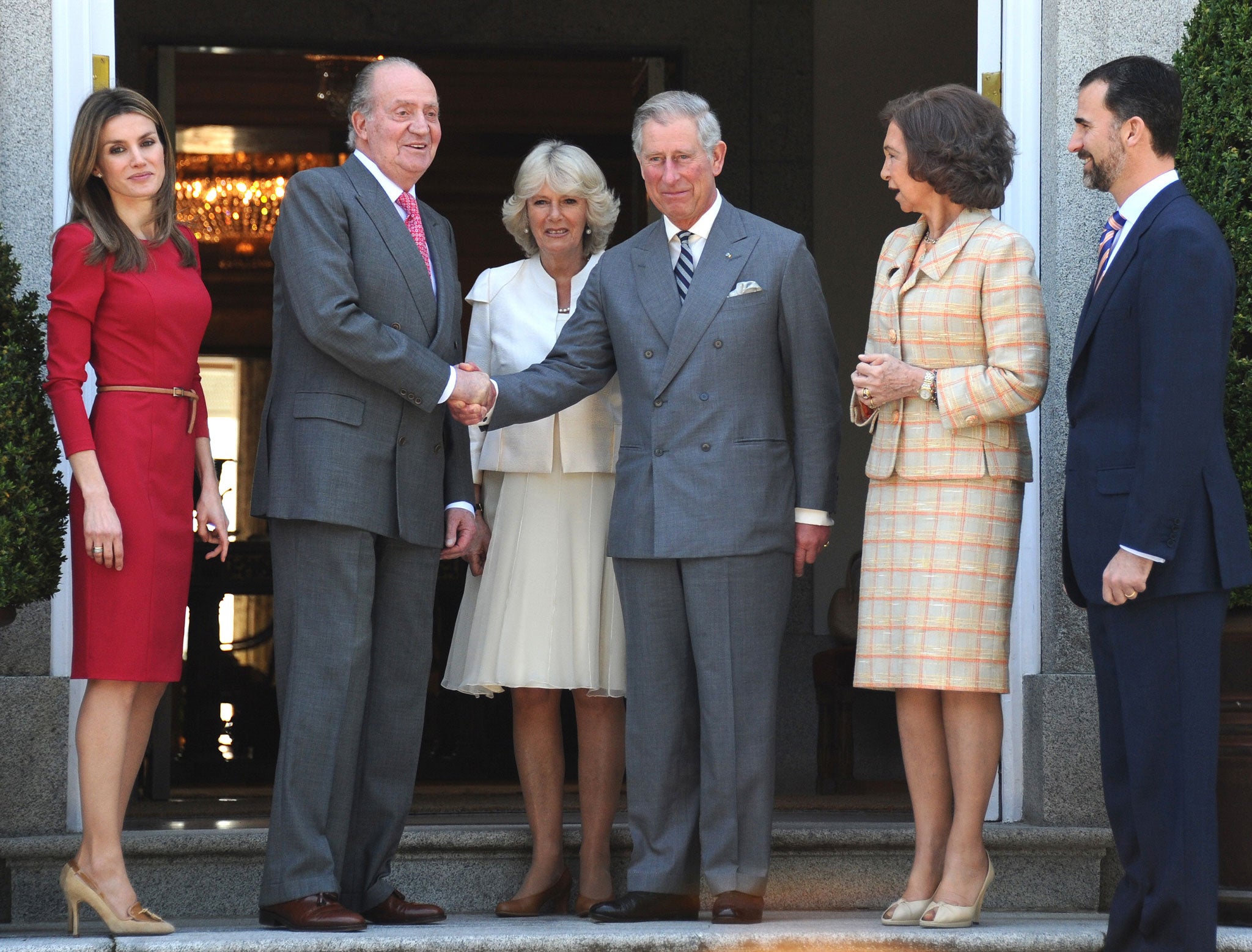What is more democratic than monarchy?
The rule is that a popular monarchy has never been overthrown


Your support helps us to tell the story
From reproductive rights to climate change to Big Tech, The Independent is on the ground when the story is developing. Whether it's investigating the financials of Elon Musk's pro-Trump PAC or producing our latest documentary, 'The A Word', which shines a light on the American women fighting for reproductive rights, we know how important it is to parse out the facts from the messaging.
At such a critical moment in US history, we need reporters on the ground. Your donation allows us to keep sending journalists to speak to both sides of the story.
The Independent is trusted by Americans across the entire political spectrum. And unlike many other quality news outlets, we choose not to lock Americans out of our reporting and analysis with paywalls. We believe quality journalism should be available to everyone, paid for by those who can afford it.
Your support makes all the difference.I don’t know whether King Juan Carlos of Spain ever met Tony Benn, but if they had Benn might have treated him to one of his favourite mini-lectures, as was his habit. Imagine, Benn used to say, you’re settling into the dentist’s chair. By way of small talk you ask the dental surgeon where he studied. “Oh no, I didn’t train at all,” he explains. “You see my father was a dentist, so I’m a hereditary dentist. Open wide.” How long would you hang around for your root canal work?
Like most Bennisms, it is telling until you come to examine it, at which point it dissolves as rapidly as a teaspoon of sugar tipped into one of Wedgie’s famous pint mugs of tea. Yes, the hereditary principle is a mad way of selecting people for jobs that matter; but, without being flippant, in a constitutional monarchy such as Britain’s, the monarch matters rather less than a local councillor, or a good dentist for that matter.
More to the point, even in the most apparently conservative societies, a monarchy can only survive with the consent of the people. Lose that, and you’ll be lucky not to lose your head as well as your throne. Juan Carlos’s announcement of his abdication suggests that monarchy is actually a pretty democratic institution – though not, I would concede, egalitarian.
So it proved in Spain. Juan Carlos’s intervention in the 1981 attempted coup was decisive. The King reflected the people’s wishes, and acted correctly.
Contrast that with more recent times, when he lost his touch lamentably; shooting elephants in Botswana while Spain suffered recession, and the corruption allegations surrounding his daughter. Not well judged or handled, sir. These were trivial compared to when he helped prevent Spain relapsing into a Falangist dictatorship; but public opinion need not be rational or consistent, or grateful for that matter.
The rule is that a popular monarchy – where the incumbent understands the importance of reigning by consent – has never been overthrown. Unpopular ruling houses, no matter how venerable and mystical, can go in days. I offer three examples. Soon, in 2017, Russia will commemorate the centenary of the revolution that saw the 304-year Romanov dynasty come to its bloody end. Even more ancient houses have since expired: Emperor Haile Selassie of Ethiopia, Lion of Judah and supposedly descended from King Solomon, chucked out by communists in 1974; and the Shah of Iran, heir to the glories of ancient Persia, supplanted by an ayatollah in exile. All demonstrate primacy of peoples over crown.
An eventually unpopular association with militarism and dictatorship sealed the fate of the Greek, Italian, Romanian, Bulgarian and quite a few other historic houses. Losing a war you helped start doesn’t help, as the Kaiser and the Hapsburgs found. By contrast, the Dutch, Belgian and Norwegian royal families survived because they went into exile and did not collaborate with fascists. Hirohito of Japan in 1945 was a rare exception – conversion from at least nominal absolutism and complicity in war crimes, to strict constitutionalism.
Looking around today, Thailand looks to be a prime example of a monarchy gone bad. Its revered head of state – the longest-serving in the world – has influenced politics for the worse, tacitly backing the recent military coup. Then again, Bhumibol’s son, Prince Vajiralongkorn, is said to be much less able than his old man, and he may in time represent a mortal danger to his royal house: An idiot heir can mess things up very quickly.
Which brings us to the UK, where we too have veered between deference, reverence, and revolution. A Mass Observation survey at the time of the Coronation in 1953 found some people believed Elizabeth II had not been born in the conventional fashion, but had been instead been the subject of some mysterious divine process, analogous to the conception and birth of the baby Jesus.
Nicholas Witchell’s fawning dispatches from the frontline of the Kate’n’Wills Aussie tour show how little we have moved on. And yet in the middle decades of Queen Victoria’s reign, when she became a recluse after the death of Prince Albert, during the abdication crisis of 1936 when Edward VIII ratted and dumped the job on his poor stammering brother, and after the death of Diana in 1997 the monarchy was almost over. We might also recall that we beheaded Charles I, and established the world’s earliest republic under Oliver Cromwell. He was, ironically enough, succeeded by his son Richard (“Tumbledown Dick”) who proved so incompetent that monarchy was restored, which proves the point: The people always get their way in the end.
Join our commenting forum
Join thought-provoking conversations, follow other Independent readers and see their replies
Comments